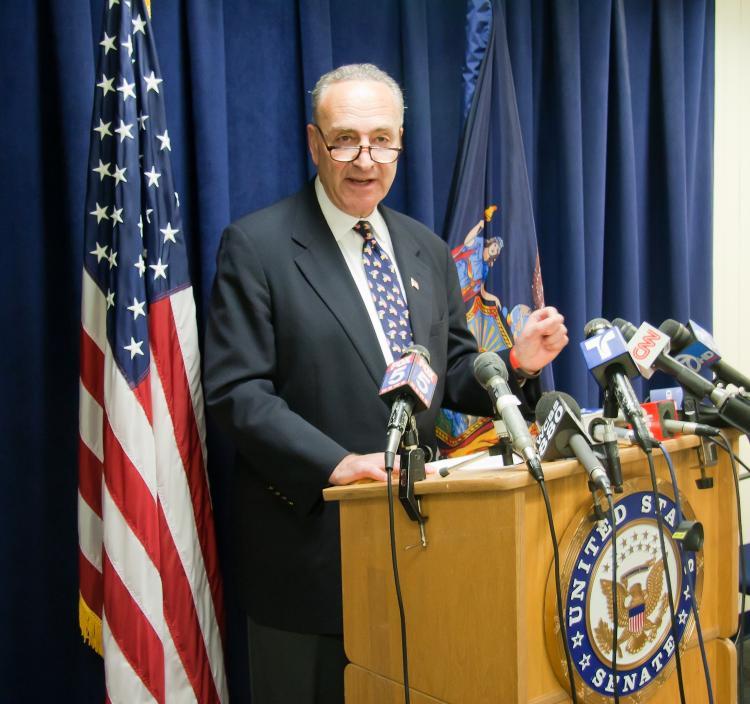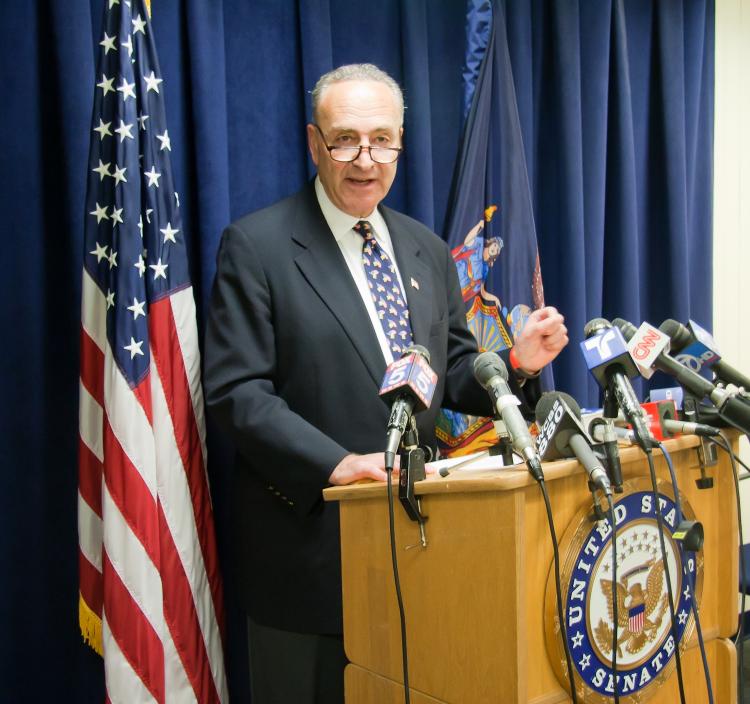New Legislation to Ban BPA in Children’s Products
Senators Schumer and Kirsten Gillibrand announced new legislation to ban BPA from products used by children.
ENCOURAGEMENT: A dozen members of grassroots groups created out of the Obama presidential campaign delivered 1,500 postcards to Sen. Charles Schumer's New York office in support of health care reform. Helena Zhu/The Epoch Times
|Updated:






